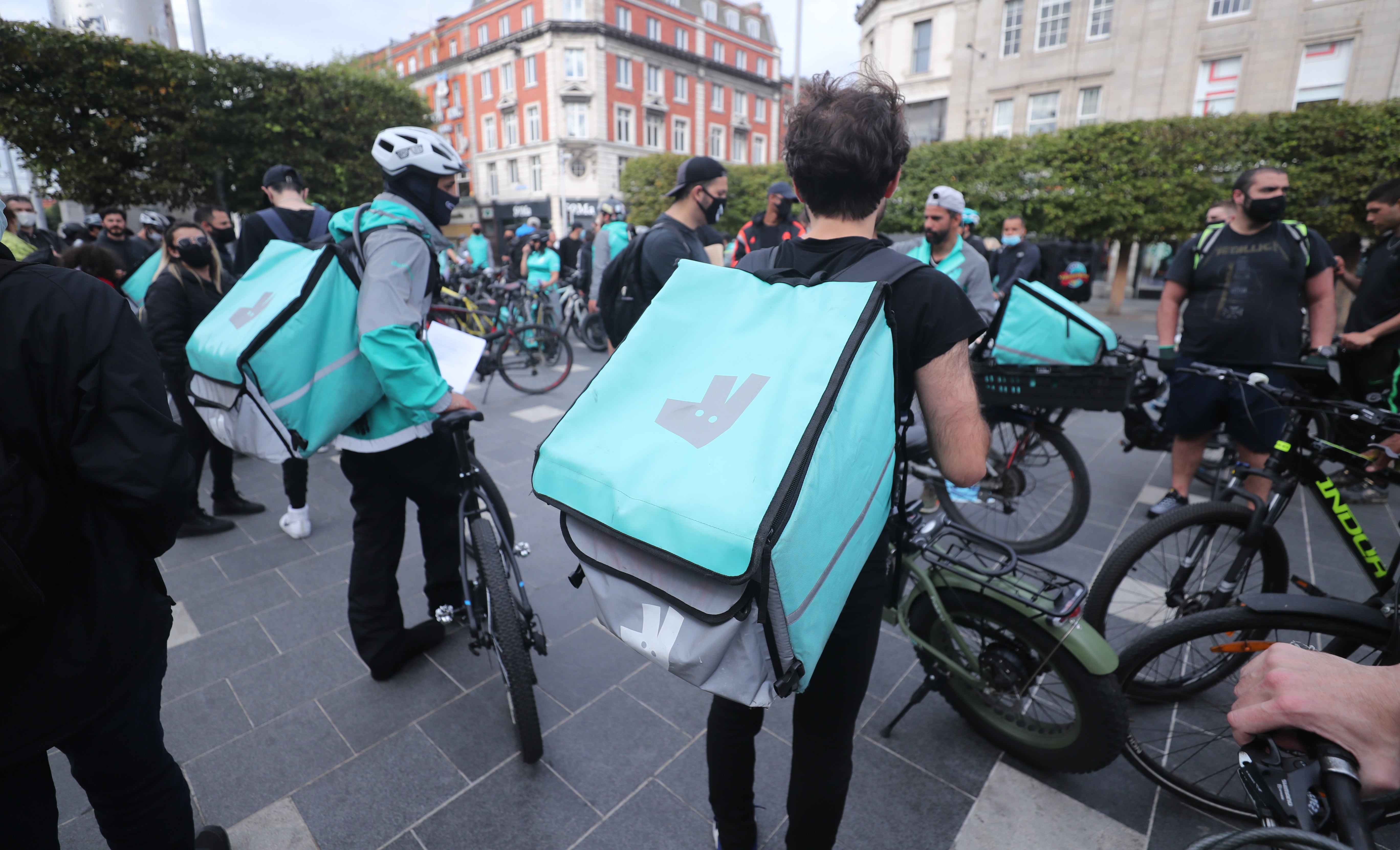Deliveroo just had £2bn wiped off its value. Here’s why
Share price plunged by as much as 30 per cent in hours

Deliveroo has suffered a nightmare start to life on the stock market, with shares in the popular food delivery company nosediving by some 30 per cent in just a few hours of trading.
Making its debut on the London Stock Exchange on Wednesday, Deliveroo had hoped to see its value rocket to as high as £8.8bn amid increasing demand during the Covid-19 pandemic, as lockdown restrictions force people to order takeaway rather than dine out.
But experts are calculating the plunge in share price has knocked about £2.28bn off the value of the company, which was founded by William Shu in London in 2013.
Deliveroo started offering a share price of 390p, but this fell to 275p at one point in the morning. The firm had initially envisioned a price of 460p. So where did it all go wrong?
Deliveroo claimed it had opted for the lower share price due to volatile market conditions, but the company's business model has come under increasing scrutiny in recent months, with investors said to be put off by its reliance on and treatment of gig economy workers.
Read more:
Workers providing Deliveroo takeaway services, which are ordered through an app, are not directly employed by the firm and therefore do not have the same rights as employees.
They are self-employed, do not earn a set wage and instead are paid for each delivery they make.
Previous research by The Bureau of Investigative Journalism found that a third of Deliveroo riders earned less than the adult minimum wage of £8.72 per hour. The lowest-paid rider received just £2 an hour, according to TBIJ’s review of pay documentation.
Deliveroo, which has not yet made a profit, disputed the claims, saying they were “unverified”. Riders earn £13 per hour, on average, the firm said. The company dismissed IWGB as a “fringe organisation” that had spoken to only a small minority of riders.
Before Deliveroo's flotation on the stock market, a slew of investors said they would not take part in the firm's initial offering.
Aviva Investors, Aberdeen Standard Investments (ASI), BMO Global Asset Management and CCLA - which manage an estimated $1 trillion of assets - chose to opt-out of investing.
Deliveroo founder Mr Shu also has shared that would give him 20-times the voting power of other investors, which was another reason given as to why some of the big hitters refused to invest.
Sophie Lund-Yates, an equity analyst at Hargreaves Lansdown, said investors have been spooked by the potential of Deliveroo's workers gaining more right.
"The flexible employee model of Deliveroo's riders is a huge pillar of the group's plans for success," she said.
"If forced to offer more traditional employee benefits, like company pension contributions, Deliveroo's already thin margins would struggle to climb, and the road to profitability would look very tough indeed."
Deliveroo's stock market debut and subsequent plummeting share price comes weeks after Uber was forced to pay its taxi driver workers minimum wage.
The Supreme Court ruled Uber drivers must be treated as workers rather than self-employed.
Subscribe to Independent Premium to bookmark this article
Want to bookmark your favourite articles and stories to read or reference later? Start your Independent Premium subscription today.

Join our commenting forum
Join thought-provoking conversations, follow other Independent readers and see their replies